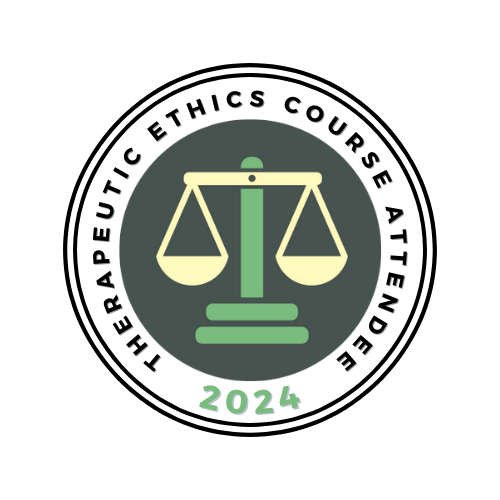Lydia Hayman
Credentials
Relationship Coach
Finances
- 18/5, Yehuda Amichai Street
- Raanana, 4334618
Lydia Hayman
 Verified
Verified
Credentials
Life Coach
Relationship Coach
Finances
350-500 NIS
None
Sliding Scale | Student Discount | Lone Soldier Discount
ABOUT THE THERAPIST
You are NOT broken - you do not need to be fixed! What you may need, however is some emotional support as you work through a particular issue in your life – a reconnection to your inner strength and to your own personal power. Perhaps you have a difficult family relationship that you would like to resolve? Or an issue that you thought was long buried but seems to be bubbling up despite your efforts to control it? Perhaps, you are in a committed relationship yet would like to work out your misunderstandings, reduce conflict, and rediscover ways to bond, communicate, and find common ground? Maybe, you feel burned out by all the effort you put into being good to others and then are disappointed when those efforts are not reciprocated? And perhaps, the relationship you really want to work on is the relationship you have with yourself? This is, after all, the most important relationship there is. The one that affects every single aspect of your life.
• I am a certified Life and Empowerment Coach: • Relationship Coach; • Heart IQ Practitioner specializing in Emotional Healing, Self-Empowerment and Improving Relationships; • Circle Facilitator - where group and circle wisdom add another dimension to the level of support that you will receive • I will help you find renewed clarity, new life-tools, new perspectives and mastery over your personal issues - including finally clearing those self-limiting beliefs that have kept you from being all you could be.
If you’re longing for a safe space to share from your heart - be heard, felt, seen in your truth and finally guided with compassion and integrity - please reach out. We’ll talk and see where it leads us … and if we’re a good fit, we may decide to continue the journey of emotional healing together. We can meet in person or via the internet – distance is no object and confidentiality is guaranteed. We were not built to be islands and handle everything alone – it’s time to reach out. I’d love to connect with you.
QUALIFICATIONS
Coach Israel
2011
Degree
Education
Coach IsraelYear of Graduation
2011Years in Practice
14
ADDITIONAL CREDENTIALS
Heart IQ Certified - 2012
Certified Clear Beliefs Coach Level 1 - 2021
BEd - Maria Grey College of Education, University of London - 1979
Clear Beliefs Coach Practitioner - Lion Goodman - Clear Beliefs Coach Training - Clear Beliefs Institute - 2021
Certified Therapeutic Coach - Clear Beliefs Institute - 2022
Certified Grief and Loss Educator - David Kessler. Grief.com - 2025
DISTANCE COUNSELING
Online Therapy
PRIMARY SPECIALTIES
Family Issues
Holistic
Life Transitions
Self-Esteem
Clearing Limiting Beliefs
ADDITIONAL SPECIALTIES
Abuse
Adjustments
Couples / Relationship / Marriage Counseling
Executive / Career / Life Coaching
Spiritual Concerns
Stress Management
CLIENT FOCUS
Population
Adults
Couples
Women
Languages Spoken
Hebrew
English
TREATMENT APPROACH
Compassion-Focused Therapy (CFT)Compassion-Focused Therapy (CFT) is an integrative psychological approach that focuses on building compassion for oneself and others. It combines elements of cognitive behavioral therapy, evolutionary psychology, philosophy, and Eastern contemplative traditions. CFT is based on the concept that compassion is a fundamental human emotion that can be cultivated to promote psychological well-being. The goal of CFT is to help individuals understand and relate to their emotions in a compassionate and non-judgmental way. It encourages clients to develop a sense of self-compassion and understanding, and to use it to create healthier ways of living. CFT also emphasizes developing a compassionate relationship with others, and can help foster greater acceptance and understanding. The primary therapeutic technique of CFT is compassionate mind training (CMT). Some CMT tools that clients may participate in are appreciation exercises, mindfulness, and compassion-focused imagery exercises. These exercises promote compassionate motivation, sympathy, sensitivity, and distress tolerance within clients.
Emotion-Focused TherapyEmotion-focused therapy (EFT) is a type of psychotherapy that is based on the idea that emotions play a key role in a person’s mental health. EFT focuses on helping people to identify, accept, and manage their emotions in a healthy and productive way. The goal of EFT is to help people identify and express their emotions, understand how those emotions impact their behavior, and learn how to manage their emotions in a way that is adaptive and healthy. EFT is a research-based approach to psychotherapy that has been found to be effective in helping people manage a variety of mental health conditions. It has been used successfully in the treatment of individuals, couples, and families, as well as with groups. EFT is particularly beneficial for people who struggle with emotional regulation, mood disorders, anxiety, trauma, and relationship issues.
Emotional Freedom TechniqueEmotional Freedom Technique (EFT) is an alternative therapy for emotional and physical distress. It is based on the idea that the cause of all negative emotions is a disruption in the body's energy system. EFT is a form of psychological acupressure, in which a combination of physical tapping and verbal affirmations are used to help the body release the emotional and physical distress.
Gestalt TherapyGestalt therapy is an experiential, humanistic approach to psychotherapy that emphasizes personal responsibility, and that focuses on the individual's experience in the present moment. It explores an individual's emotions, behaviors, and thoughts, and how they may be influencing one another. It is rooted in the belief that people are responsible for their own experience, and that they can make conscious choices to improve their lives. The goal of gestalt therapy is to help individuals gain insight into their current experiences and to become aware of how their behaviors and thoughts shape their present reality.
Guided ImageryGuided imagery is a form of visualization used for relaxation and healing. It uses the power of the imagination to create positive changes in a person's thoughts, feelings, and behaviors. It is also used to reduce stress and anxiety, cope with physical and emotional pain, increase motivation, confidence, and self-esteem, and to improve focus and concentration. During a guided imagery session, the practitioner will guide the client through a series of visualizations, using words and descriptions to help them create mental images in their mind. These visualizations can take many forms, such as a comforting place from the past or the client’s future goals.
Imago Relationship Therapy (IRT)IRT focuses on helping couples identify and address their unconscious patterns of behavior that contribute to conflict and dissatisfaction in the relationship. IRT also emphasizes the importance of forgiveness and validation in healing past wounds and creating a more positive and fulfilling relationship. IRT helps couples develop communication skills and a deeper understanding of each other's needs and feelings.
Through Imago Therapy, couples will be able to explore their communication patterns, discover sources of conflict, and create new ways of connecting with each other that build empathy and understanding. The therapist will also work with the couple to create a vision for their relationship and set realistic goals for how to achieve it. This therapy helps couples to develop better communication, trust, and intimacy, as well as providing hope for the future of their relationship.
Mindfulness-Based Cognitive Therapy (MBCT)Mindfulness-Based Cognitive Therapy (MBCT) is a form of therapy that combines cognitive behavioral therapy with mindfulness practices. It is based on the idea that our thoughts, emotions, and physical sensations can affect our mental health. MBCT helps individuals become aware of their thoughts, emotions, and physical sensations in order to gain insight and control over them. MBCT helps clients learn how to recognize their sense of being and see themselves as separate from their thoughts and moods. This separation can free the client from thought patterns in which the repeated negative messages may be dominating the client’s focus. After developing an awareness of the separation between thoughts, emotions, and the self, people in treatment may find that while the self and the emotions may exist simultaneously, they do not have to exist within the same dimension. The healing can take place when one learns how to interject positive thoughts into negative moods and thereby create a shift in mood.
Neuro-Linguistic Programming (NLP)NLP is an approach to communication, personal development, and psychotherapy that focuses on understanding how people think, communicate and interact. It was developed by Richard Bandler and John Grinder in the 1970s. NLP looks at how people use language, their body language and other non-verbal communication to understand their inner experiences. It uses techniques such as modeling, reframing, and anchoring to help people change their behavior and beliefs. Its goal is to help people understand how they think and take control of their own behavior and thoughts. NLP is based on the belief that the way we think affects how we feel and how we act. It points out that each person operates within their own subjective reality rather than from a place of objectivity. Proponents of NLP believe everyone’s perception of the world is distorted, limited, and unique. A therapist who practices NLP explores how a person in treatment perceives their reality and the effect this perception may have on that person’s thoughts and behavior. The therapist can then help them find and strengthen the skills that serve them best and assist them in developing new ways to replace ones that have shown to be unproductive or harmful.
Somatic Experiencing (SE)Somatic Experiencing (SE) is a body-oriented approach to the healing of trauma and other physical and psychological stresses. It is based on the idea that the body is a powerful source of healing and that unresolved trauma can be resolved through the process of bringing awareness and attention to the physical sensations of the body. By gradually and gently guiding individuals through the sensations associated with their traumatic experience, SE can help to restore balance and well-being more quickly and effectively than traditional psychotherapy. SE utilizes the body’s natural ability to regulate and heal itself and supports individuals in developing more resilience and self-regulation. Somatic Experiencing aims to help people move past the place where they might be “stuck” in processing a traumatic event. SE is often used to treat symptoms of post-traumatic stress disorder (PTSD), anxiety, depression, and other mental health issues.
Clearing Negative/Self-Limiting Beliefs
SERVICES OFFERED
Coaching
Consultation
Couples Therapy
Group Therapy
Workshops/Educating


 Verified
Verified

